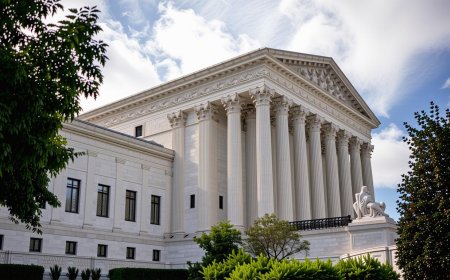Exploring the FBI: America's Top Law Enforcement Agency
Discover the role, history, and impact of the FBI in maintaining national security and law enforcement in the United States.

Exploring the FBI: America's Premier Law Enforcement Agency
Introduction
The Federal Bureau of Investigation (FBI) stands as a cornerstone of national security and law enforcement in the United States. Established in 1908, the FBI has evolved over the decades to address the complex challenges of crime and security in a rapidly changing world. This article delves into the FBI's history, its multifaceted role, and its impact on society.
History of the FBI
The origins of the FBI trace back to the early 20th century, a time when the United States faced rising concerns over crime and corruption. Founded by Attorney General Charles Bonaparte under President Theodore Roosevelt, the agency began with a small group of special agents. Initially focused on investigating corruption and antitrust issues, the FBI's mission soon expanded to include more diverse threats.
The J. Edgar Hoover Era
Under the leadership of J. Edgar Hoover from 1924 to 1972, the FBI underwent significant transformation. Hoover modernized the agency, introducing scientific methods of investigation and focusing on professionalizing law enforcement. Despite controversies surrounding his tenure, Hoover's influence on the FBI's development was profound, cementing its reputation as a premier investigative body.
Role and Responsibilities
The FBI's role today encompasses a broad range of responsibilities aimed at protecting the United States from both domestic and international threats. Key areas of focus include:
- Counterterrorism: Investigating and preventing terrorist activities.
- Cybercrime: Addressing threats in cyberspace, including hacking and cyber-terrorism.
- Public Corruption: Combating corruption within government and public institutions.
- Organized Crime: Tackling syndicates involved in drug trafficking, human trafficking, and more.
- Civil Rights: Ensuring the protection of civil rights and investigating hate crimes.
Impact and Achievements
The FBI's impact on national security and law enforcement is profound. Through its investigations and collaborations with other agencies, the FBI has successfully thwarted numerous threats and brought countless criminals to justice. For example, the FBI played a critical role in dismantling major organized crime families and has been instrumental in counterterrorism efforts post-9/11.
Partnerships and Collaborations
Collaboration is key to the FBI's success. Working alongside local, state, and international partners, the FBI enhances its capabilities and scope. Initiatives such as the Joint Terrorism Task Forces (JTTFs) highlight the agency's commitment to teamwork in addressing complex threats.
Conclusion
The FBI remains an indispensable component of America's law enforcement landscape, adapting to new challenges while holding steadfast to its mission of upholding justice. As threats evolve, so too does the FBI, ensuring the safety and security of the nation.
To explore more about the FBI and its initiatives, visit the official FBI website today.
References
Federal Bureau of Investigation. (n.d.). Retrieved from https://www.fbi.gov
What's Your Reaction?
 Like
0
Like
0
 Dislike
0
Dislike
0
 Love
0
Love
0
 Funny
0
Funny
0
 Angry
0
Angry
0
 Sad
0
Sad
0
 Wow
0
Wow
0






































































